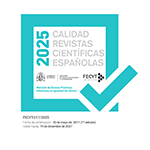"Ciwewe". Cultura y poder en una canción "cokwe" del este de Angola colonial, 1955
Résumé
Este artículo analiza las potencialidades políticas de la cultura y de la subjetividad a partir de una canción cokwe registrada y grabada, entre muchas otras, en el noreste de Angola en el año 1955 por la empresa de diamantes Diamang. A partir de los datos etnográficos resultantes del trabajo de campo, basados en la historia oral de Angola y en fuentes de archivos coloniales portugueses, y mediante perspectivas de estudios postcoloniales y de antropología crítica, pretendo reflexionar sobre la relación entre el poder, la cultura y la subjetividad en contextos de opresión colonial y de subalternidad. Sugiero que el análisis centrado en la música (y en expresiones culturales asociadas como el baile, el canto y la poesía) —realizadas en el interior rural de Angola durante el período colonial, y en las subjetividades que la envuelven y de las que emergen—, es crucial para la comprensión no sólo de una práctica particular y distintiva de una cultura y su historia, sino también sobre la participación de las comunidades angoleñas en las nuevas realidades coloniales que resultan en lógicas complejas y ambiguas, en las cuales se entrelazan dinámicas de control y de resistencia.
Téléchargements
##submission.format##
Licence
La Revista de Antropología Social, para fomentar el intercambio global del conocimiento, facilita el acceso sin restricciones a sus contenidos desde el momento de su publicación en la presente edición electrónica, y por eso es una revista de acceso abierto. Los originales publicados en esta revista son propiedad de la Universidad Complutense de Madrid y es obligatorio citar su procedencia en cualquier reproducción total o parcial. Todos los contenidos se distribuyen bajo una licencia de uso y distribución Creative Commons Reconocimiento 4.0 (CC BY 4.0). Esta circunstancia ha de hacerse constar expresamente de esta forma cuando sea necesario. Puede consultar la versión informativa y el texto legal de la licencia.












